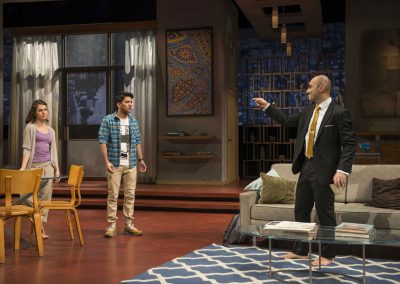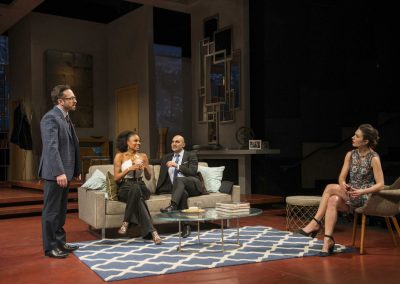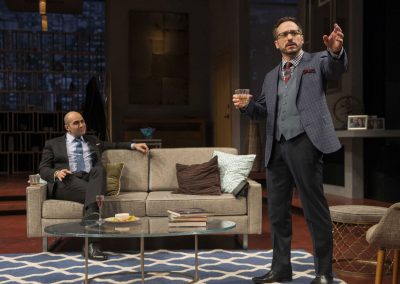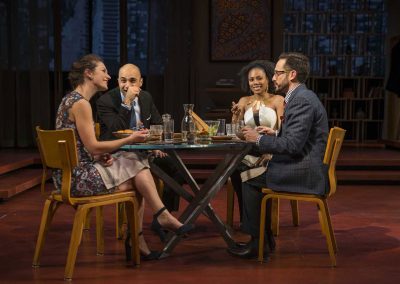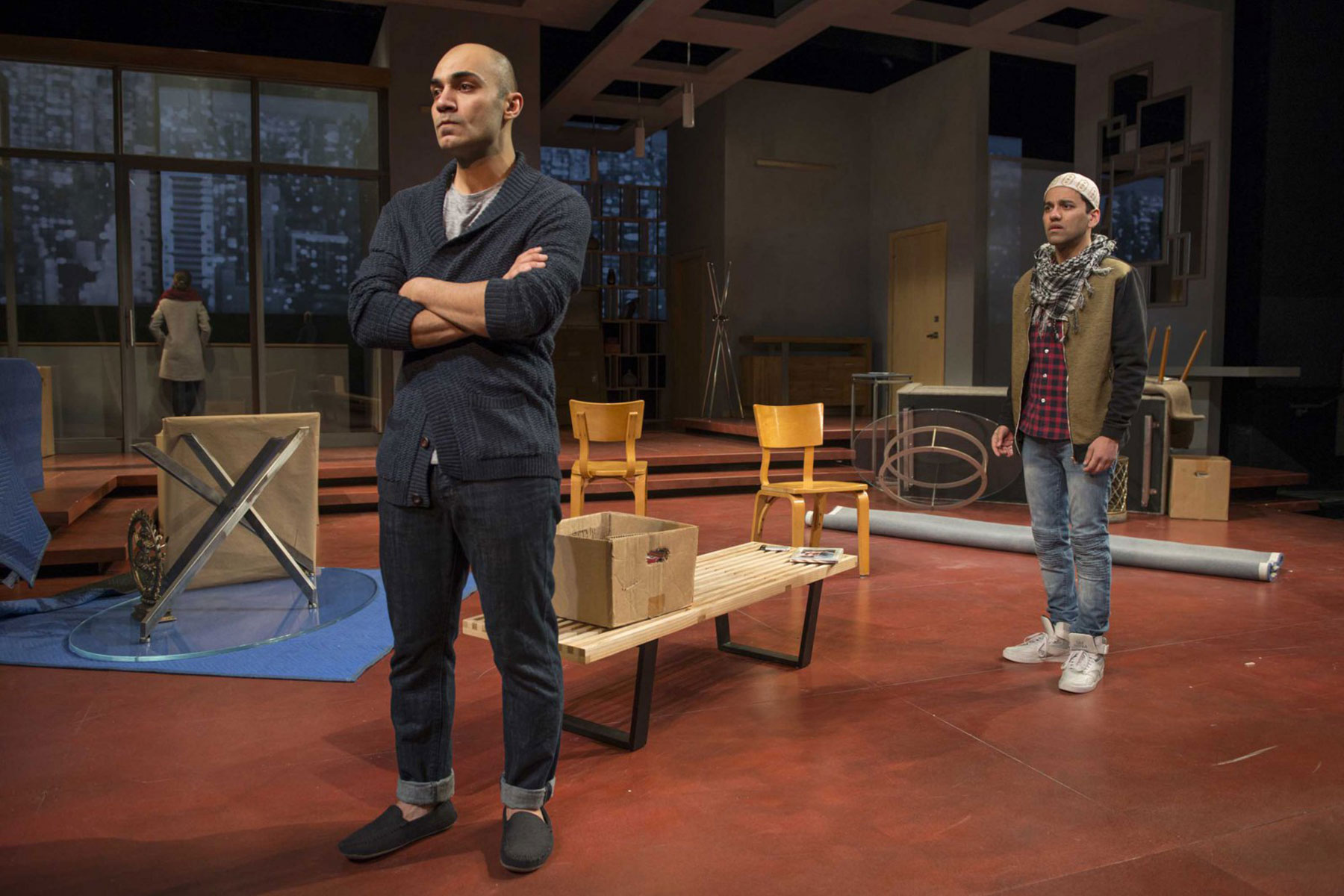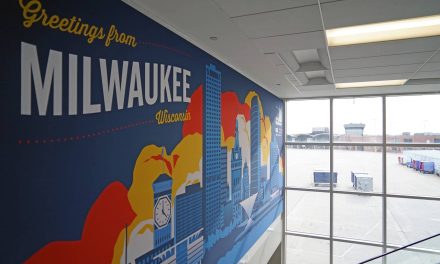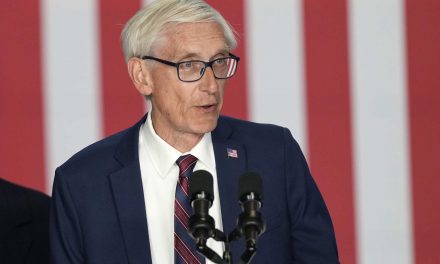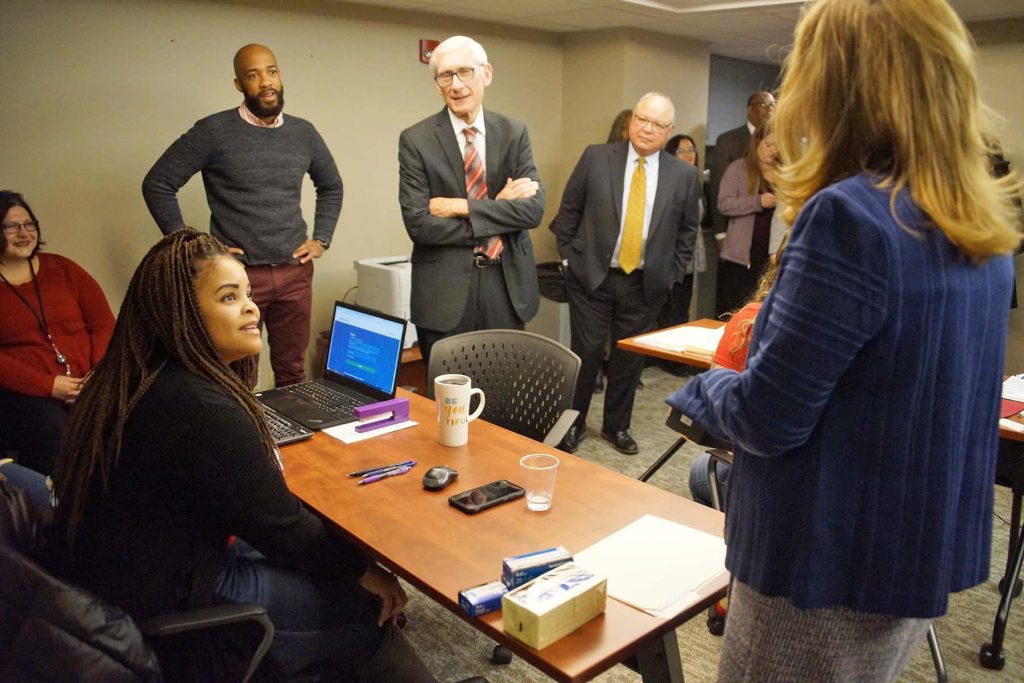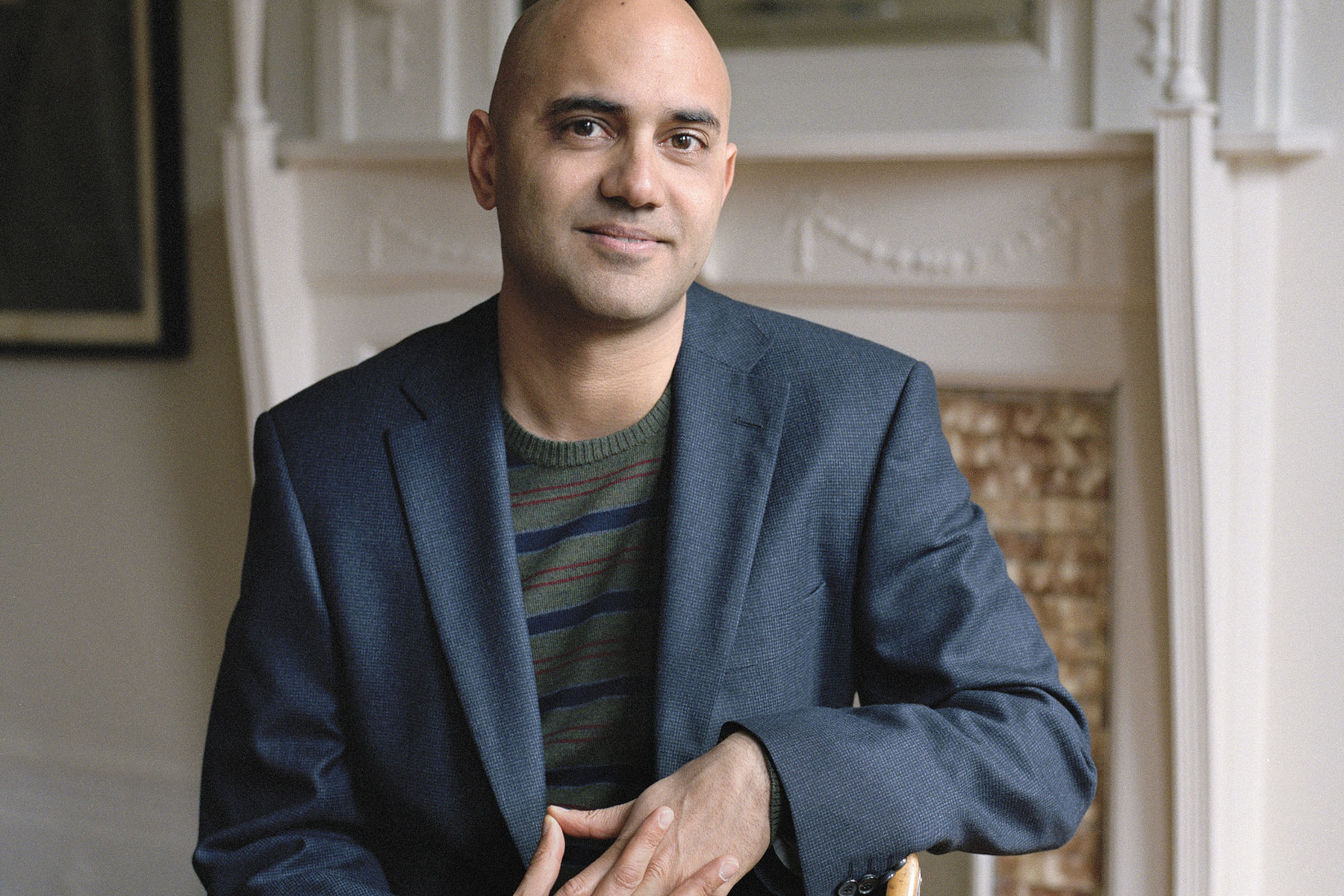
This essay is part of a series that explores the Muslim community in Milwaukee. The Milwaukee Independent previously published an extensive interview with Janan Najeeb. It was an effort to help our readers better understand the people of Islamic faith who live in the city, and address questions that were not the usual fear-based reactions to news events. As a result of the positive impact and popularity of Najeeb’s profile, the Milwaukee Independent invited her to offer a continuing editorial voice about our Muslim neighbors and their shared stories from the community.
I recently attended one of the Milwaukee Repertory Theater’s performances of “Disgraced,” one of the most widely produced stage plays around the country during the last theatrical season.
The main character in this fictional play is a New York attorney named Amir. He has changed his name and tries very hard to shed everything that identifies with his Pakistani American ethnicity, in order to be seen as a real American. He is an “apostate” or former Muslim who spends much of the play presenting an angry and stereotypical understanding of Islam and Muslims.
This play, written by Brookfield native, Ayad Akhtar, has received tremendous recognition and accolades. The American Muslim community shared a sense of excitement and pride, that one of their own had finally broken through the glass ceiling by writing a Pulitzer Prize-winning play. It is greatly tempered by their feeling that it could have very well been written by someone with an anti-Muslim agenda.
While playwright Akhtar is certainly not anti-Muslim, he does acknowledge being raised a “cultural Muslim,” rather than one immersed in the understanding and practice of the faith. Some wonder if the fascination with this work of fiction is partly due to the validation of fears many have about Muslims, while vindicating those that have made a living by propagating such fears.
In some reviews, the Muslim community’s concerns have been summarily and patronizingly dismissed as simpletons that do not understand art, or a community that does not want their dirty laundry aired in public. Such broad generalizations are not only incorrect, but they lead to a one sided monologue that is meant to silence critics of the play.
Muslims are neither the first group nor will they be the last group in America to be stereotypically portrayed in theater, film, art, media or other mediums. However, when that portrayal and representation goes beyond dangerous stereotypes, aiming for shock value, it can contribute to the type of anti-Muslim hysteria that has gripped our nation. The results include calls for instituting a national Muslim registry, bans on the building of Mosques, and a skyrocketing number of hate crimes and discrimination against American Muslims or those perceived to be Muslim.
Recognizing that the charged dialogue within the play could promote stereotypes, The Rep took it upon themselves to offer a talk back, facilitated discussion, dinner dialogue, or panel after each of the 32 shows, this was a tremendous undertaking. In addition, after the run of the play, there are plans for a presentation with the Interfaith Conference of Greater Milwaukee to address some of the issues raised in the play regarding Islam.
The representation of Islam as a religion to be feared, one that encourages dishonesty, misogyny, anti-Semitism and sympathy for terrorists that attack our country has been repeated ad nauseam by those with anti-Muslim agendas. In fact, the creation of this massive Muslim bogeyman that must be destroyed was the platform for the GOP presidential campaign the past year and a half. It was instrumental in helping Donald Trump get elected as President. The same themes were presented in the play, Disgraced.
In the interest of clearing up stereotypes, here is a brief primer on some of the issues raised in the play:
- Taqiyya: In the play, Amir’s nephew says, “It’s in the Quran. It says you can hide your religion if you have to.” This statement alluded that lying and deceit is part of the Islamic faith, however lying and deceit is not acceptable in Islam. This is not in the Quran and many Muslims have never even heard of this word. This refers to an incident at the time of the Prophet Muhammad 1400 years ago. The Muslims were a very small and persecuted minority. An incident occurred where two new converts to Islam were captured by the polytheists and tortured. One man refused to recant his faith and died a martyr, the other one, unable to withstand the torture, told his tormentors that he would leave the faith. In actuality he did not. Similar stories are found in other faiths, fearing for one’s life is human nature. Many Jews practiced Taqiyya during the Holocaust, some even changed their names and removed identifiers of their Jewish faith. The disciples of Jesus also practiced this when they feared for their lives.
- Misogyny: In the play, Amir says that the Quran endorses wife beating. Cherry picking verses from holy texts without historical context and out of scriptural context is nothing new. Cherry picking is routinely done by those that are anti-religion and by those that want to malign a particular faith. One could very easily do this with the Bible, there are many verses that at face value appear not only misogynistic but even violent towards women and others. The Prophet Muhammad is the role model for Muslims and is regarded as the “walking Quran,” he said “the best of you is the best to their wives.” The Prophet never hit a woman. As a country, we have one of the highest rates of domestic violence, this is a criminal act and has nothing to do with faith, and no one has tried to attribute it to Christianity.
- Anti-Semitism: In multiple areas in the play, Amir talks about his mother’s anti-Semitism, and attributes this to Islamic teaching. In fact, Muslims share the Abrahamic heritage with Jews and Christians. The Quran refers to Jews and Christians as “people of scripture.” This is an honorary title and recognition that these are communities honored by God and having received scripture from God. For 1400 years, Muslims fast the day of “Ashura,” in gratefulness to God for saving Moses and his people from Pharaoh. Many times, Muslim condemnation of Israeli political policy and its occupation of Palestinians are labeled by those that want to prevent any criticism of Israel as anti-Semitism. There are many Christians, Jews and others that criticize Israeli policy; it is not attributed to their faith.
- Terrorist Sympathizers: This dangerous stereotype has been used against many minority groups throughout our short history as a nation. Including in WWII when our government forced thousands of Japanese American citizens from their homes. Men, women and children were placed in horrible internment camps. The lie that American Muslims applauded the terrorist acts of 9-11, is meant to create a polarization, it is meant to question the patriotism of Muslim Americans. It even ignores the fact that many Muslims working in the towers, also died on 9-11. It ignores the fact that many of the first responders in New York were Muslim and some of them died trying to save others. Terrorism is motivated by politics; it has nothing to do with religion. This does not mean that Muslims do not condemn our government’s fiasco in Iraq, which left nearly a million human beings, mostly civilians dead. Muslims and many others consider our war in Iraq as an immoral war that was based on lies, this is certainly a valid position and does not mean we are unpatriotic.
As a small minority with limited influence, American Muslims seldom have the opportunity to challenge stereotypes and have their voices heard. If Disgraced was simply one of a number of plays about American Muslims, which included some with more artistic and insightful depictions, there would be no need for discussion. However, right now in America, this is the only mainstream depiction.
We continue to look forward to having more Muslim playwrights that break the glass ceiling. It remains our hope that they will wield his or her power constructively, by building bridges of understanding and deconstructing the Muslim bogeyman that has been created by Islamophobes. But perhaps that kind of play would not see the inside of a theater, regardless of the urgency.
Janan Najeeb
Michael Brosilow

